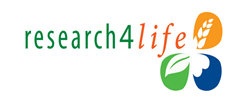German Language Teachers and Dyslexic Students
DOI:
https://doi.org/10.15330/jpnu.10.3.237-246Keywords:
developmental dyslexia, specific reading and writing difficulties, German language teachers, symptoms of dyslexia, learning German, legal regulations for dyslexic studentsAbstract
Dyslexia is a common disorder experienced by many students in Europe and worldwide. It is a specific learning disability, which also generates difficulties in foreign language acquisition. Publications presenting the etiology, pathomechanism, symptoms and types of dyslexia can be found in literature. There are also guidelines for parents and teachers of dyslexic children. This paper attempts to fill a gap in literature addressing teachers of specific school subjects, more specifically German language teachers, who have dyslexic children in their classes. The article points out the difficulties faced by both the teacher and the students. We present a synthetic review of the literature on dyslexia and the current research on the subject, followed by the key laws and regulations in the Polish legal system that relate to the situation of a dyslexic child at school, with particular emphasis on modern language (German) classes. The Polish legal system and the knowledge contained in the most recent literature set the framework for the conduct of educational institutions and indicate the principles of action of professionals, including Germanists, involved in the education of dyslexic students. Symptoms of specific foreign language learning difficulties include, for example, poor development of linguistic functions, difficulties in differentiating sounds and finding sounds in words, problems with dividing words into syllables or distinguishing similar-sounding words, difficulties in assimilating grammatical and spelling rules. Compilation of practical tips with guidelines for the assessment of dyslexic pupils, e.g., the use of descriptive assessment for written work, possible use a computer for written work, providing oral answers to questions from the bench rather than the middle of the classroom, asking simply formulated questions, is most essential for German language teachers. These teachers, as well as teachers of any modern language, should bear in mind the need to use pedagogical, legal and practical knowledge in their work with dyslexic students.











